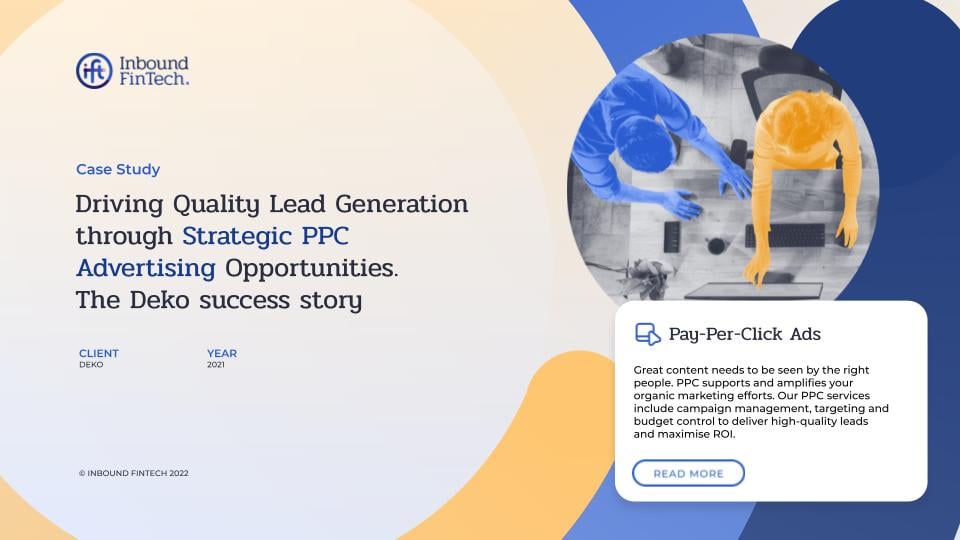As an experienced digital growth agency, companies often ask us about the benefits of different marketing platforms and CRMs. When investing in new software solutions, businesses want to make sure that the platforms can offer the right value and meet their needs and objectives. One of the common questions we get asked is, “HubSpot vs Marketo, which is better? And what are the key differences?”
So, we’ve put together this handy comparison blog and video to help you see the key differentiators between HubSpot and Marketo.
HubSpot vs Marketo comparison [video]
If you’d prefer to watch our video on the topic of HubSpot vs Marketo, listen to our CEO and Founder, Sheila Mitham, and our Head of Marketing, Maria Milea, discuss the pros and cons of HubSpot and Marketo:
6 key differences between HubSpot and Marketo
For this marketing platform comparison, to help you understand whether HubSpot or Marketo is the more suitable platform for you, we’ve outlined 6 key differences where one platform stands out from the other.
1) An all-in-one platform for growth
With HubSpot, you can manage your Marketing, Sales and Service activities all in one platform. This is hugely beneficial from a business perspective. It’s so important for business owners and senior management to have visibility of everything, which HubSpot provides.
This allows you to be more strategic, make more informed decisions and to map out your entire user journey across these three hubs. If you wanted to achieve the same with Marketo, you’d have to heavily invest in other platforms and integrations.
2) One source of truth for data
Businesses are starting to realise the importance of having one source of truth for data. Take the example of looking at a particular contact in your database. You want to be able to see the experience this contact has had with your business, such as their engagement levels, communication with your teams, website activity, etc. The great thing about HubSpot is that you get a very clear view of the contact’s journey with your brand, including details about what has driven engagement and what has caused any issues, and when. These are invaluable insights.
Attribution is a key factor with marketing platforms and CRMs. A great new feature in HubSpot’s Marketing Hub Enterprise is multi-touch revenue attribution. This allows you to automatically connect each customer interaction to revenue so that you can see how different actions and channels are leading to revenue. This enables you to make more strategic decisions that are rooted in business value.
Although you can still get some of this data using Marketo, to get this level of insights, segmentation and visibility of data you would need multiple sources and platforms to put it together. And it would require time-consuming manual processes to get what you need and for your team to make sense of it all.
3) Sales and marketing alignment
Due to HubSpot’s flywheel model and combination of Marketing, Sales and Service Hubs, all in one place, it’s much easier to align teams and processes. Sales enablement is made possible thanks to the wide range of tools and automation features that help to create an interconnected and seamless customer journey.
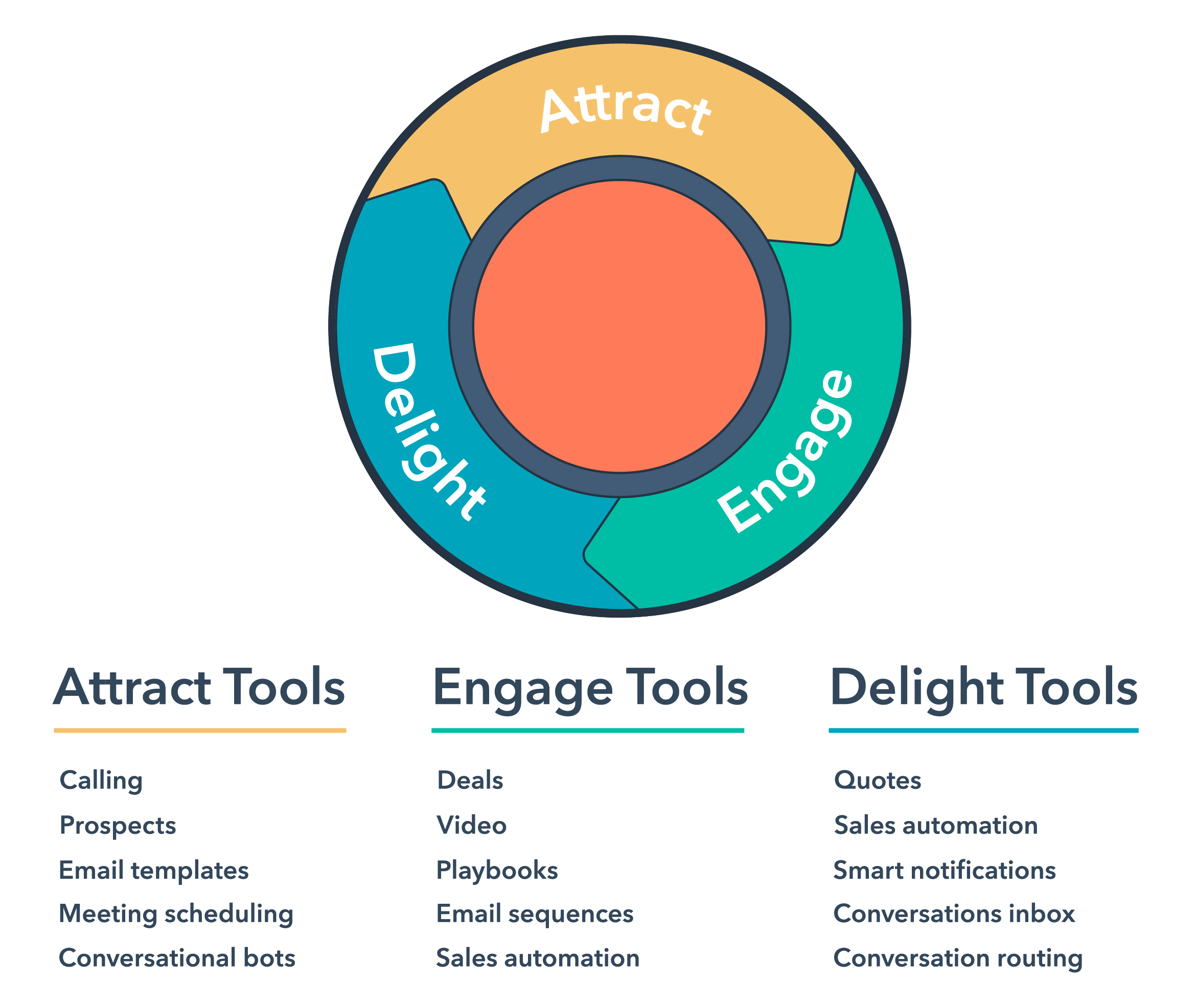
We’ve had a lot of companies coming to us with very fragmented sales and marketing processes, with teams working in silos, not communicating with each other or tracking things effectively. HubSpot allows businesses to harmonise teams and create synergy, which reduces time-wasting, manual errors and costs.
Again, the issue with Marketo is that you can’t achieve anywhere near the same level of alignment and visibility over processes and data within the user journey. Also, putting together an SLA for Sales and Marketing teams is so much easier in HubSpot because there are simple ways to share relevant data between teams, assign tasks and provide feedback. From a marketing perspective, getting information about what the Sales team is doing is crucial to forming and optimising your strategies.
4) Simplified content management
Having the ability to create, optimise and manage your content all in one place is another area where HubSpot has a clear edge of Marketo. You can create website pages and blogs with both platforms, but with Marketo, you have a much more limited scope for content creation.
On Marketo, you can create website pages, but landing pages and blogs only. Although you can optimise for SEO and add forms and personalisation, HubSpot can do all that and much more. You can add smart content, forms, pop-ups and even live chat. It’s so easy to use too, especially with the introduction of drag-and-drop editing capabilities.
HubSpot’s new Marketing Hub Enterprise features take things to the next level too when it comes to content creation and management. There’s adaptive testing, powered by AI, which far exceeds A/B testing capabilities and you can create custom chatbots with enhanced chat flows. HubSpot’s tools are all designed to increase CRO and engagement throughout the customer lifecycle.
HubSpot powerful new adaptive testing feature automatically shows the most successful content to visitors
Personalise your chatbots to increase engagement and improve conversion rates
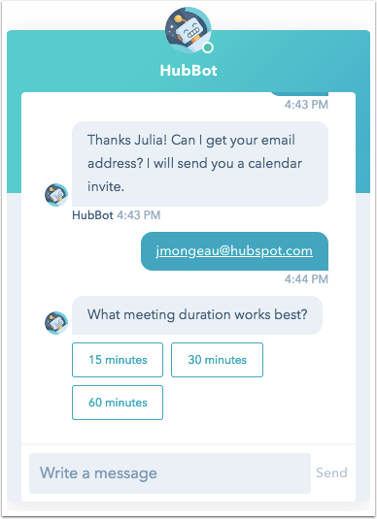
On top of all that, there’s HubSpot native video tool, social media publishing and paid social ad creation, plus a content strategy tool that helps you build content pillars and topic clusters. When it comes to HubSpot vs Marketo in terms of content, there is really is no contest. The possibilities for content are almost endless with HubSpot.
5) Community and support
HubSpot has a fantastic community and support infrastructure. The extensive knowledge base means that for pretty much any query you have, there’s an answer, blog or video to explain features, tools or issues!
The customer service is excellent too and HubSpot is very passionate about supporting their customers, partners and community members. And these community members are keen to support each other too, particularly when someone submits a query or suggestion. These suggestions can be forwarded to the HubSpot Development team to consider and actually implement a feature that addresses a need or an issue.
We haven’t seen this type of scope or agility for support on any other Marketing or Sales platform. Marketo’s community and support network just doesn’t compare to HubSpot’s.
6) Ecosystem
We love how easy HubSpot makes it to grow with the platform. And a lot of that is down to the HubSpot’s ecosystem that exists and is thriving. There are over 300 software integration partners which offer a wide range of capabilities to businesses, to meet your unique needs, whether you’re a SaaS company, ecommerce brand or publisher. This is crucial, as your software stack is not just about HubSpot, Marketo or Salesforce, there are so many elements that businesses need to consider.
Having so many options for connecting key tools and platforms to your CRM really helps for business growth, visibility and agility. The integrations make sure you get the flow of data between your systems.
HubSpot is putting so much focus and investment into its ecosystem, which is growing all the time. You just don’t see the same trend with Marketo.
Summary: HubSpot or Marketo? HubSpot wins hands down!
As you’ll have gathered from the key differences between HubSpot and Marketo we outlined, HubSpot is the clear front runner! HubSpot is making a huge investment into R&D and putting it back into the company to enable businesses of all types and sizes to grow better and scale at pace. And HubSpot’s 2020 Marketing Hub Enterprise, for which there was a roll-out of great new features and a huge increase in capacity, shows a statement of intent to ensure there are no ceilings in the platform’s capabilities and for innovation, even for very large organisations.
We hope you found this HubSpot vs Marketo blog and video helpful. To learn more about the new HubSpot marketing features for enterprise users, check out our recent blog on the updates: HubSpot’s New Marketing Hub Enterprise Features Combine Power with Usability.
If you’d like to discuss HubSpot with our team of experts, get in touch or request a free consultation.
Inbound FinTech is an award-winning Elite HubSpot Partner Agency, based in London serving a global client base, predominantly in the Financial Services sector. We know HubSpot inside out and can help you leverage the platform to attract and nurture quality leads and drive business growth. Let's work together.




%20(3).png)






















.png)
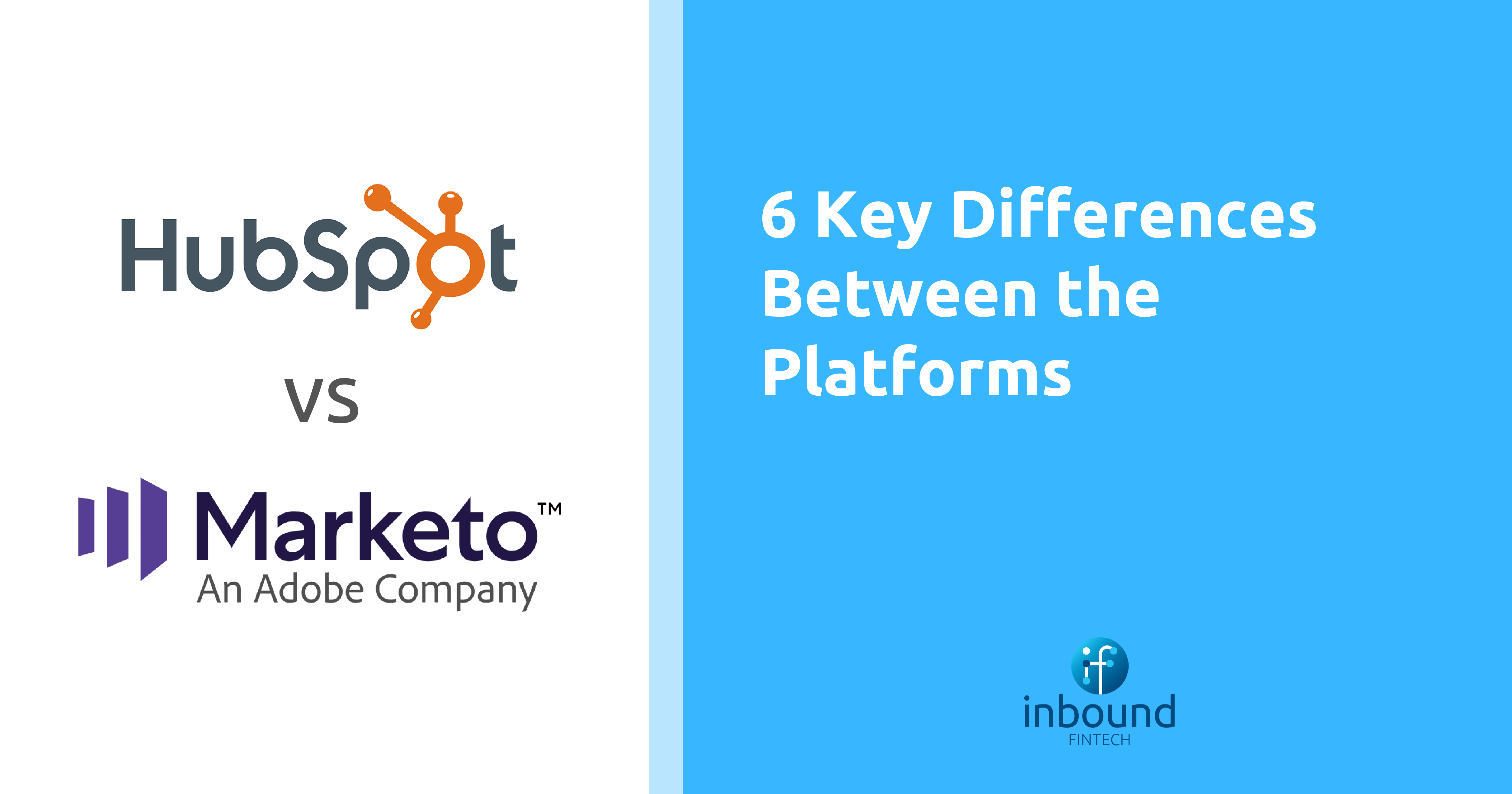
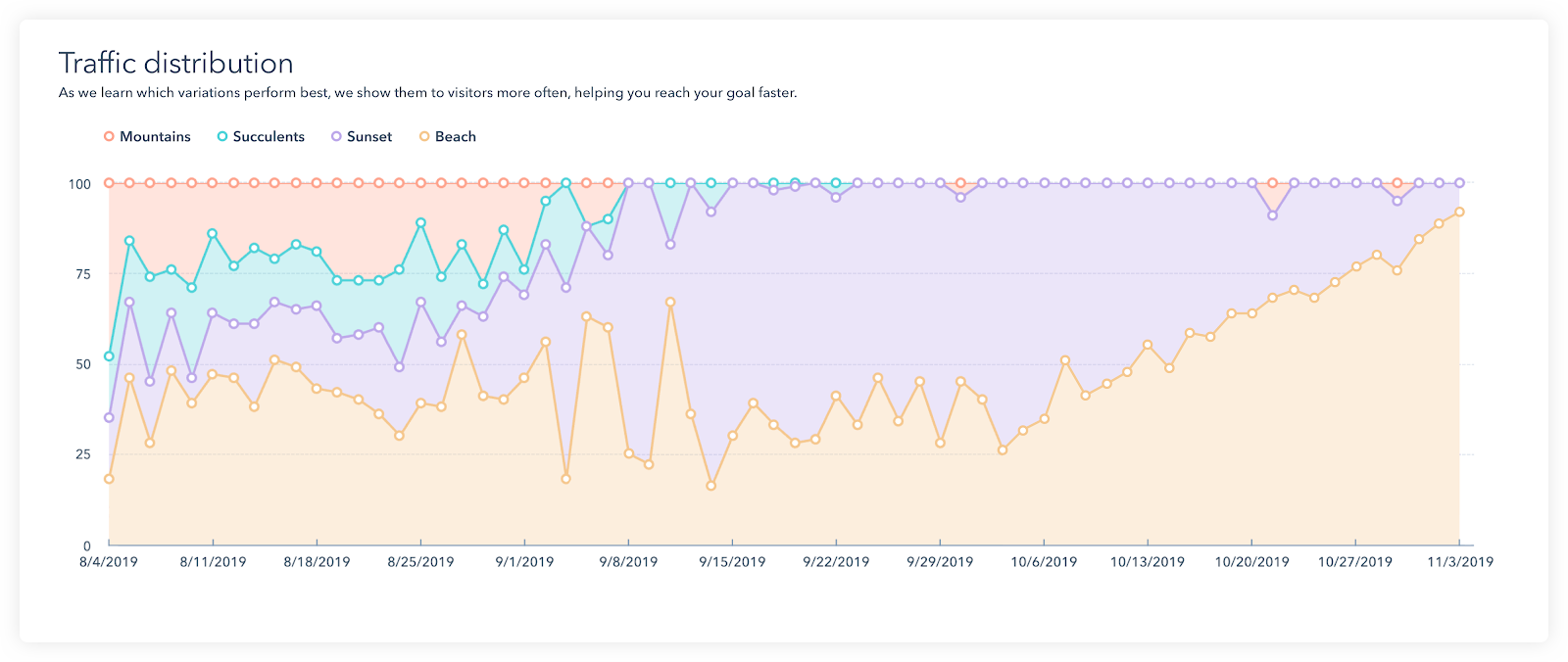

-1.png)


